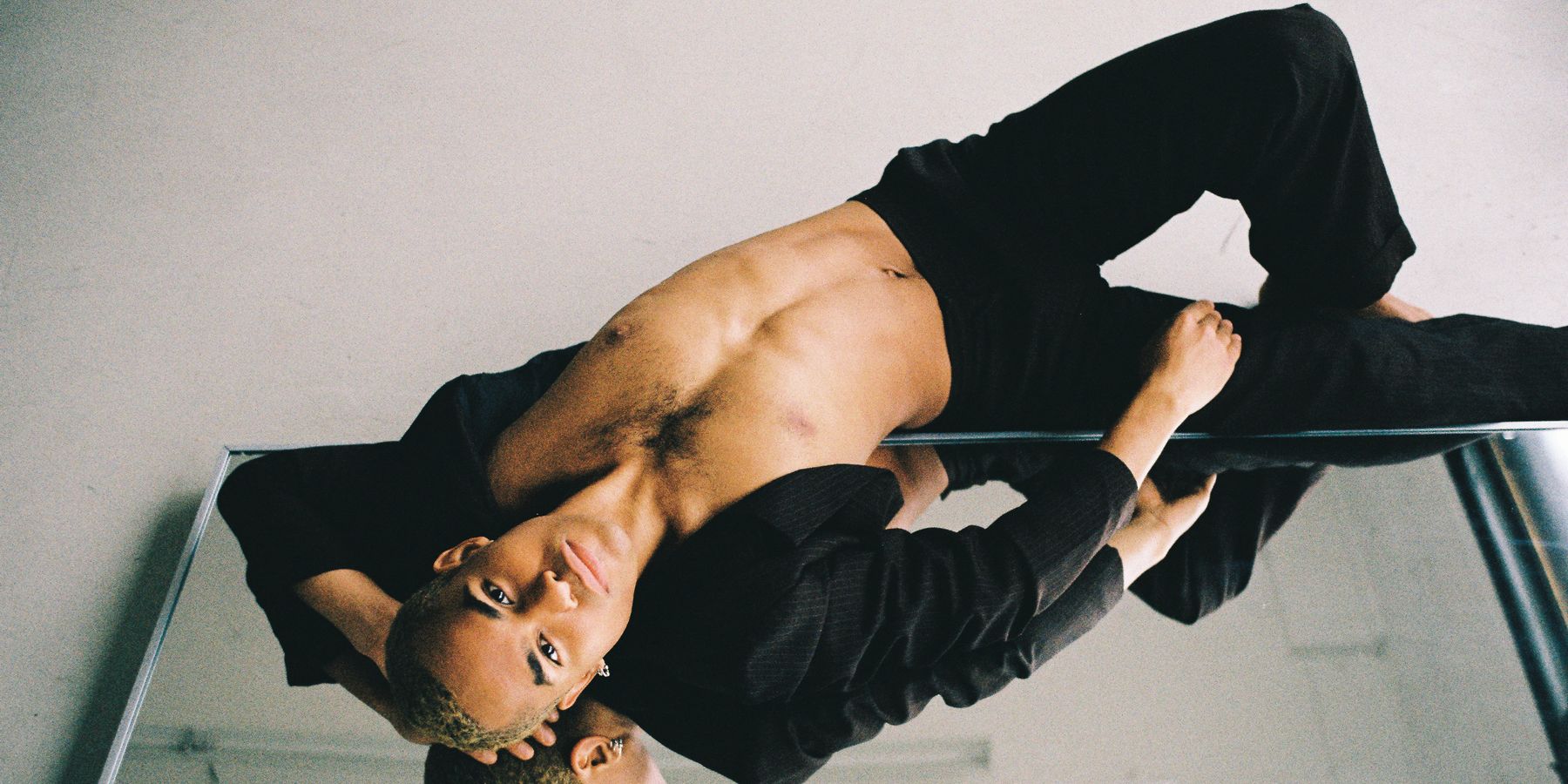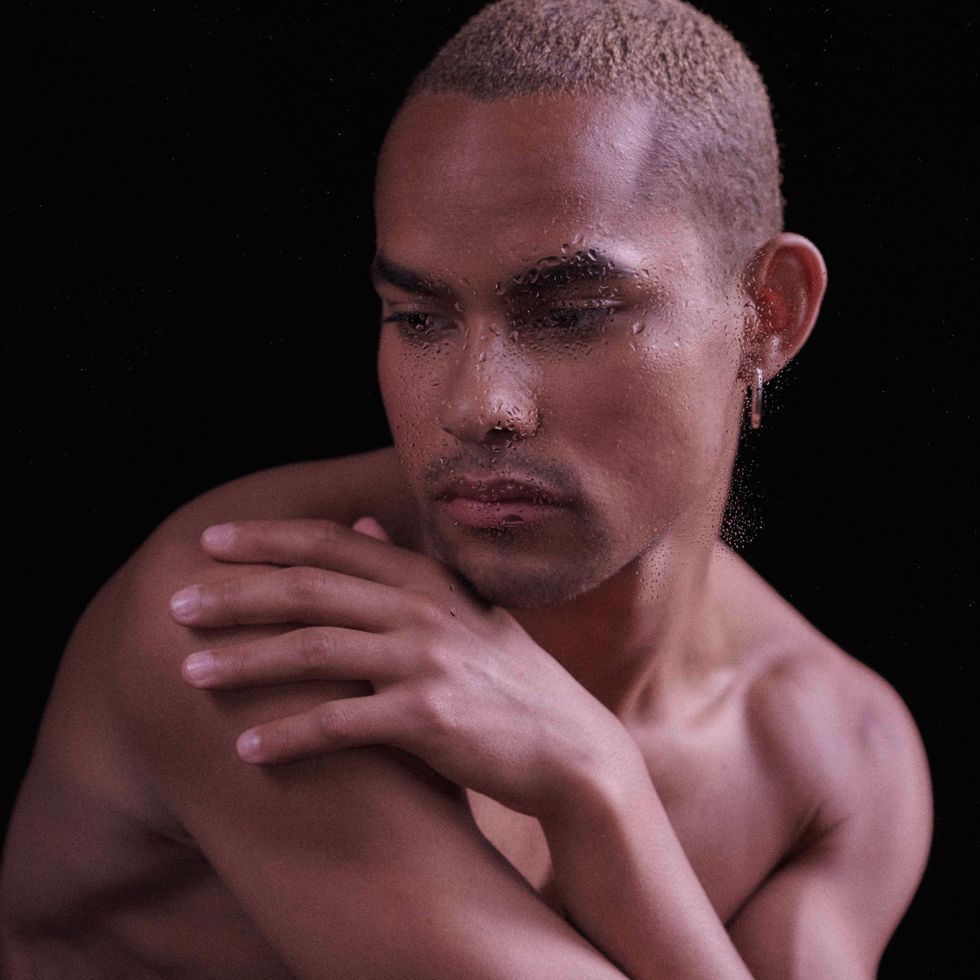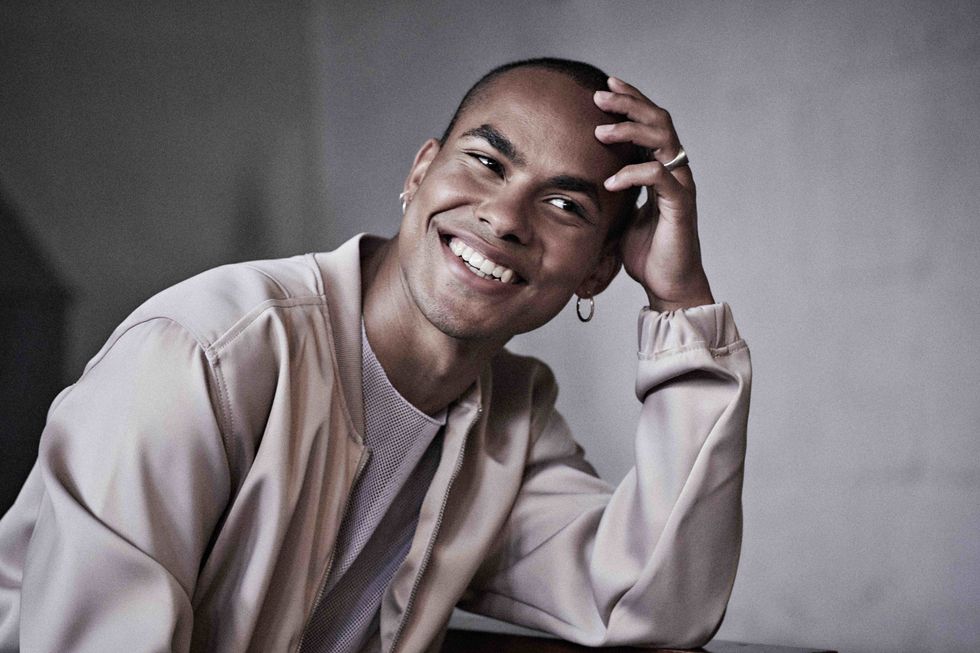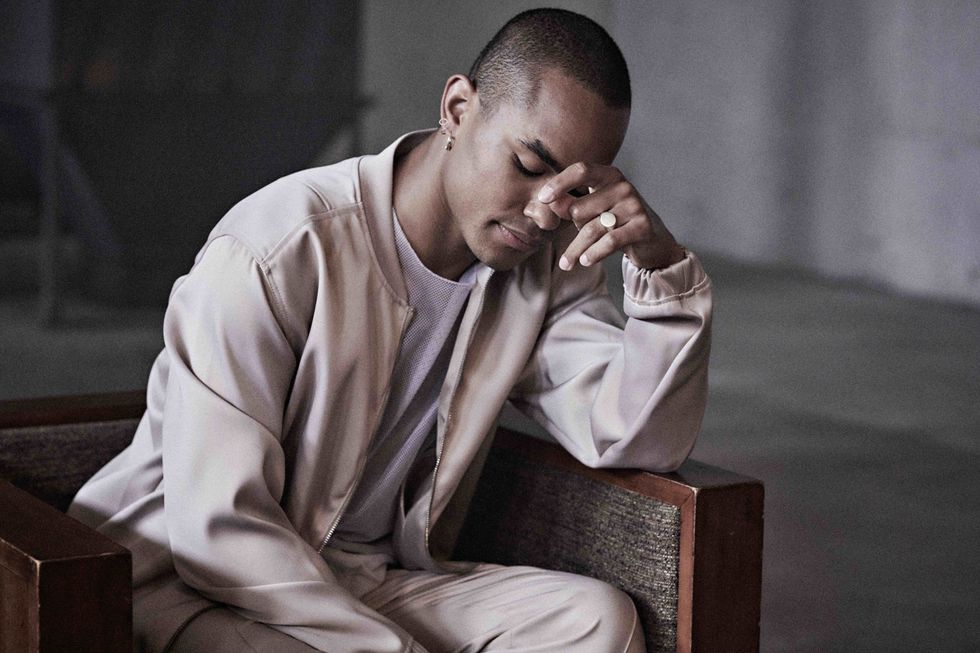
Many human beings spend their lives searching for home, whether in a physical space or within communities, all to feel a sense of belonging.
Growing up, 22-year-old Berlin musician Lie Ning was no different. He too yearned for a stable concept of home. As a half white, half West African person surrounded by a majority of white Berliners, he didn't feel a sense of deep belonging. And though there were people of color, queer people, and artists living with him in the city's Prenzlauer Berg district housing project, the idea of "home" can still be challenging to define when living with a single mother and 24 other people.
Early on, Lie Ning learned that one way to find home was to create it himself. But how?
"I never found it through people showing me something or giving me something, but in me opening up to them," he says. "It was then I realized that I can create this realm that I've been looking for. And it's always been in my power to decide this."
Lie Ning is still on his quest. With interests in dance, film, and visual art, music is the home in which he feels most comfortable, having realized from a young age he had a voice that others were drawn to.

Photography: Ben Wolf
It's true: his voice is like the spiritual child of Billie Holliday and Anohni, vibrating with melancholy and deep pools of emotion. Ning is moved by the atmospheric creations of Jill Scott and the storytelling ability of Lauryn Hill. On his debut single and video for "Tonight," premiering today on PAPER, Ning merges all of his artistic interests and influences past and present. The video is a testament to how even the most subtle movement informs music, and vice versa. In sensual frames, he draws little lines with his body, and another draws little lines with theirs. They connect, form shapes in unison, and disconnect.
On the song, Ning sings about unity in multiple forms, starting small and going global. He sings about how connection can be formed in an instant on a night out, dancing with a lover or friends. How connection can be temporary or everlasting. How we all need to come together as a human race. As he sings in the bridge, "we are one." And though "Tonight" feels like an oceanic R&B dance track, moving to its own sense of time, it is also an urgent plea to humanity: Let's find home in one another now. Watch "Tonight," below.
Can you tell me about your search for home? How do you understand it today?
I grew up in this co-op. It's communal living with my mom and 24 other people. Which means there's always been circulation, people are either moving out or moving in, there's been so many important humans in my life from early on, which kind of changed the meaning of "home" always, so it's always been dependent on how safe I felt in the environment I was in. At the time when I grew up, Berlin was and is still very white, and I'm of color, so there weren't people I could relate to or look up to. I never felt completely belonging, if that makes sense. Then through certain humans and certain people, I experienced that feeling of belonging, but not through them showing me something, or giving me something, but through me opening up to them. And this process opened this whole idea of "Wow, I can create this space, I can create this realm that I've been looking for." And it's always been in my power to decide on it. And I'm still on the quest obviously, but there's already so many people that I consider "home."
That's beautiful. I think that "home" deepens for us queer people with the concept of chosen family and whatnot.
Yes, 100 percent. But also through being queer, and having had this realization that the chosen family is so important, it made me choose my birth family as well. Because I'm lucky to have a very, very good relationship to them. So later on I was able to choose them as half of the people that I chose anyway. And I think especially in the straight community, there's so many families I know that are disturbed and in horrible condition, and they should also consider maybe choosing.
You said you grew up around lots of white people. Was racism a part of your day-to-day experience at all?
Not at all.
Okay, that's good. Lucky.
I was very protected. Yeah, I was very lucky. I was super protected by the house project that I grew up in because it was super queer, it had many people of color from different places around the world, so I was in a safe environment always, and my mom was very protective about it so she would never make me feel different because of the color of my skin, which I'm very lucky for. And then just later on things happened. This year I went to Indonesia. And for the first time I met a lot of racism, a lot of homophobia as well from white people living there, which I haven't experienced in Berlin so much before. And being in my early twenties, it's just such a weird situation to be in all of a sudden when you're not used to it, which kind of showed me my privilege, as well. Which is always amazing — being confronted with your own privilege.

Photography: Ben Wolf
I read that your mother had a profound influence on you as an artist as someone who took you to some of your first concerts. Can you talk more about that?
Well, in the beginning it was kind of a struggle because she herself is a fashion designer, and she experienced the scene and how art can really change what you value. In her case, as soon as she became a mom, she's thinking about getting older, providing for her children, and so on. So she saw all the downs and the cons of artistry, as well as the pros obviously. But she kind of tried to warn me because everything I was interested in was singing, dancing, acting — everything performance related. And then when I kind of started to go in that direction, she was the best support system I could imagine having.
"For me, there was never a way of not creating art. It doesn't have to be music even. I need to work in this sphere."
She was like, "Okay, you made a conscious decision and I'm going to help you as much as I can because I've made all the mistakes possible, so I'm going to try and prevent you from doing the same." And she is an amazing critic. As one of the founders of the housing project I lived in, she's been around lots of musicians and artists. In the 90s in Berlin, there was a huge surge of electronic and techno music and all those crazy parties. Coming from this, she always tried to protect me from it, but at the same time I felt how much of the vibe is still in her. She embodies this force which is so fucking inspiring, and I think this is something that I've only found in the women in my life — like women and womxn people in my life have this strength and this power that is so inspiring, it keeps me going every day.
As a young artist, did you ever feel like you had to pursue a more practical path? Were you in school to be something else?
I never felt like I had to do it, I just felt that was kind of what people would want me to do. So I went to this French school where we learned lots of languages and everyone was studying law and communication. I think people thought I would go in the same direction, because it's something that I like and that I'm good at, but I never felt like I could seriously pursue it. For me, there was never a way of not creating art. It doesn't have to be music even. I need to work in this sphere.

Photography: Ben Wolf
When did you realize that you wanted to sing?
I've always been singing, and I always knew the effect that my voice had on other people because it did have an effect, which was nice because I could manipulate emotions; I could create an atmosphere. That's something that I'm very interested in, especially in working with people which I want to do more of. Being able to sense them and maybe even try and show them a different side to what they are feeling. And that's always kind of been there in a very playful way, naive, innocent way. But then I never really wanted to be a singer and I don't know if I'm a singer now. But I feel like I have a voice that I'm not ashamed to use, and I'm not shy to use my voice, when many people that have been through similar experiences are quieter, and I am very happy to share these stories and I feel like my stories have to be heard, not necessarily the voice itself.
"I have a voice that I'm not ashamed to use… my stories have to be heard."
In "Tonight," there's so many layers in how it seems to be about both temporary and lasting connection. I love that you say it starts with the voice, but really it's about the words and the story you're trying to tell, and that story is very complicated.
Thank you. The song itself, I wrote it in no time. I spent this night with my best friend, it was like this crazy night out. We shared lots of intimate stories that we haven't shared with anybody before. It felt very safe, it felt very empowering to talk about it to another person that you trusted so much and then also within this evening, it felt like we could easily or my friend could easily explore whatever she wanted to explore by herself, and she knew that I would be there throughout the whole time and keep her back. The song wrote itself from that experience.
What's it's been like to start performing?
What I love about writing and what I love about music, is that I never understand my songs myself until I sing them to an audience. So when I first sang this song, I was on stage and there were lots of POC in the crowd and I, for the first time, understood this is even more about visibility and me telling someone that they can do whatever they want no matter what and I see them. For me, that's the most important thing. I want to share that I'm seeing you, I'm seeing every one of you. I'm practicing that. Whenever I walk down the street, I practice to look people in the eyes. I want to give them the feeling of being seen without being uncomfortable, and that they're important and they're visible.
Tell us about your upcoming EP.
It's called Traffic Songs for the In-Betweens because it is for the people like me who sometimes feel unseen, but I can make myself visible very easily and some people can't for whatever reason so I want to encourage that. I think of "traffic songs" as something that I would listen to when I go from points A to B. So every day I need certain songs to get by, whether I'm making a decision, or preparing for work, or about to meet certain people. These songs can be for all those in-between moments between points A and B. It can mean realizing that you're getting older, realizing that you are in some sort of transition. For me, personally, the in-between state is being socialized in a white country by being of color without having the connection to my family in Western Africa, which has always been this confusion because I've never felt completely belonging to any of these identities. I learned with time that I don't have to feel alone because there are many people who feel the same way. You can be okay in limbo. Truth is, we are always in limbo.
Follow Lie Ning at @lie__ning.
Lead Image: Isabel Hayn